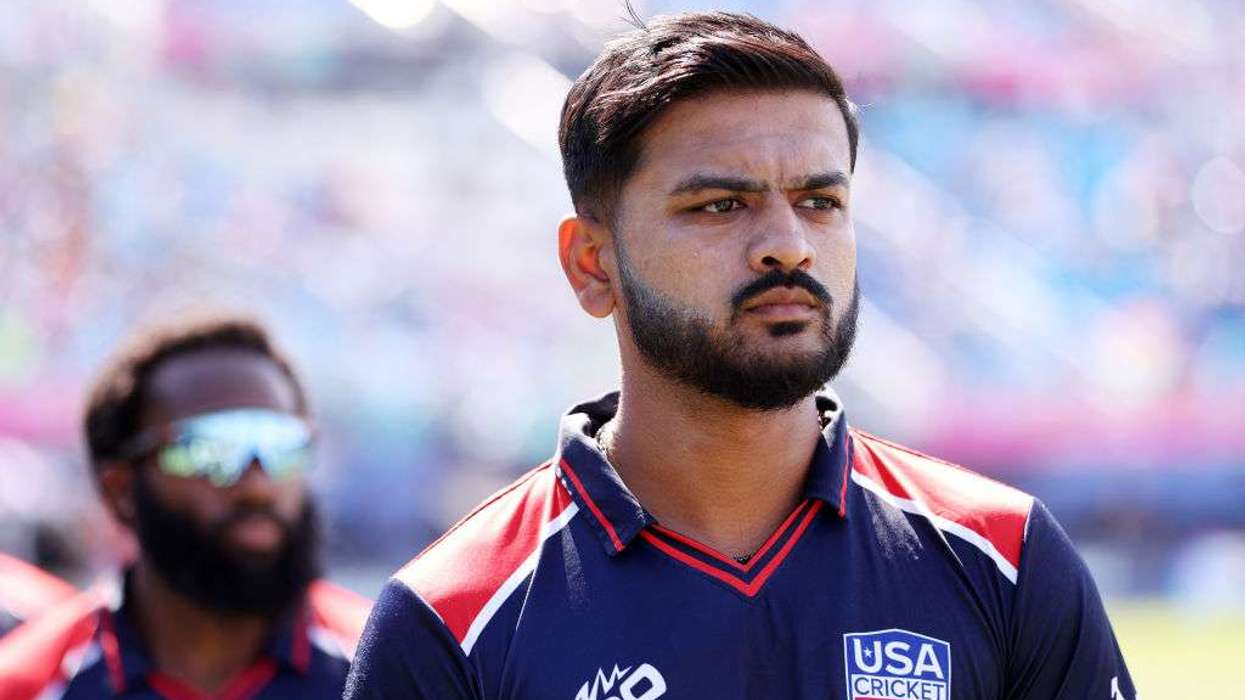Pakistan skipper Babar Azam smashed 196 and Mohammad Rizwan 104 not out to deny Australia victory on Wednesday and force a dramatic draw in the second Test in Karachi.
The Australians had sniffed victory on their first tour of the country in nearly a quarter of a century, but Azam and Rizwan put in record-breaking performances to ensure the series will go to a meaningful third and final Test starting Monday after the first also ended in a draw last week.
The Pakistan pair looked to be safely steering the home team to a draw, but spinner Nathan Lyon turned the match on its head by dismissing Azam and then Faheem Ashraf with successive deliveries.
Set a daunting 506-run target, Pakistan finished on 443-7 after being bundled out for 148 in their first innings. Australia made 556-9 declared in their first innings and, after deciding not to enforce the follow-on, declared their second at 97-2.
Lyon came on to bowl the third of the 15 remaining overs of the match, and with his fourth delivery had Azam glove a catch to Marnus Labuschagne at forward short-leg.
Next ball Lyon had Ashraf caught at slip to raise hopes of an Australian win.
The late-hour drama also saw Usman Khawaja drop Rizwan on 91 off luckless spinner Mitchell Swepson with 18 balls left in the match.
The pugnacious Rizwan, in the company of tailender Nauman Ali (nought), batted out 46 balls during their 29-run stand for the eighth wicket to keep the three-match series tied at 0-0.
Azam's marathon knock of ten hours and seven minutes is the second-longest in the fourth innings of a Test, behind Michael Atherton's vigil of 185 not out that lasted 643 minutes and helped England secure a draw against South Africa in the 1995 Johannesburg Test.
"This innings means a lot to me and to my team," said Azam of what is his best-ever Test score.
"The plan was always to try and survive, and even towards the end there were no serious discussions about chasing it."
The knock is the best-ever fourth-innings score by a captain, surpassing Atherton's South Africa knock.
It now stands as the highest fourth-innings total by a Pakistani, erasing the 171 not out Younis Khan made against Sri Lanka in Pallekele in 2015.
Australian skipper Pat Cummins rued missed chances.
"Probably just didn't grab the couple half-chances that were presented to us," he said, adding: "But a great five days of Test cricket."
Azam added an invaluable 228 runs for the third wicket with Abdullah Shafique (96) and another 115 for the fifth with Rizwan, keeping Australia's spin-cum-pace attack at bay.
With Pakistan falling 63 short of the 506-run target, the record for the highest chase in all Test cricket remains with the West Indies, who scored 418 against Australia at Antigua in 2003.
Azam's knock frustrated Australia and skipper Cummins, who dismissed Shafique and Fawad Alam (nine) in the first two sessions to raise hopes of a win.
But Australia were themselves to blame for not dislodging Azam as Travis Head and then Labuschagne dropped sharp catches off Swepson in successive deliveries with the batsman on 161.
The Pakistan captain also survived a confident leg-before appeal against spinner Lyon when on 157, but it turned out to be umpire Aleem Dar's call on review.
Lyon was the best Australian bowler with 4-112 off a marathon 55 overs.
Australia haven't played in Pakistan since 1998, having declined to tour since then on security grounds.



